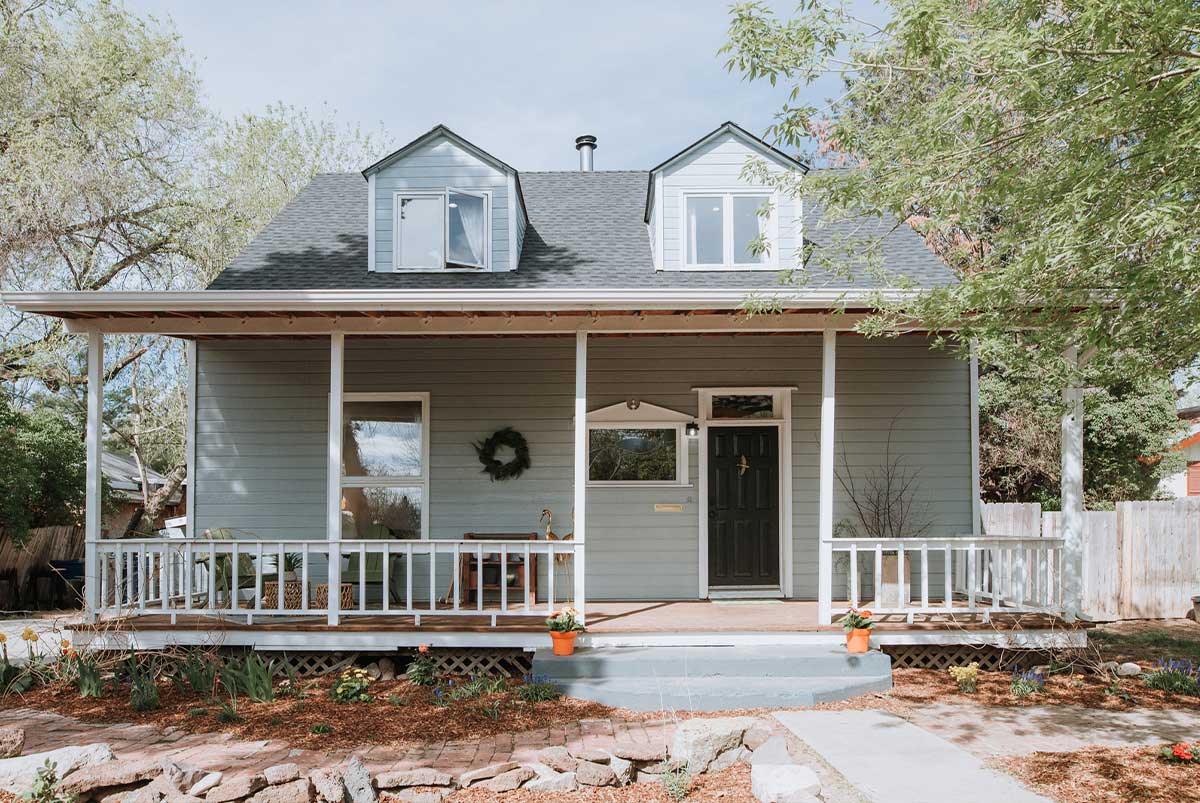Buying and selling real estate can be stressful, especially if you’re worried that you’re selling or buying at a bad time. Many homeowners and home buyers spend a lot of time wondering if it’s a buyer’s market or seller’s market.
Here’s all the information you’ll need to understand what a seller’s market is and whether it’s the right time to buy or sell a house.
What Is a Seller’s Market?
Many factors determine whether the current housing market favors sellers or buyers. If all or most of those factors are in the seller’s favor, the real estate market is typically considered a seller’s market.
When the demand for homes is high, sellers can expect to get multiple offers, even if their asking price is high. In a seller’s market, sellers don’t need to accept the first offer they get. They can hold out until they get a better offer.
You’re in a seller’s market when it’s easier to sell a home and harder to buy one. As a buyer, you might have to make offers on several homes before one of your offers is accepted.
Seller’s market scenarios
Let’s say you want to buy a home for your family. The job market is good and interest rates are low. The area you’re looking at is close to your job, and it’s in a desirable area with good schools and amenities.
There are available homes in the area, including a few new-construction homes, but it seems like the houses are getting snapped up as soon as they go on the market. You put in offers, but the sellers keep telling you the same thing: Someone offered more than you did and/or is willing to pay cash. Then they ask if you’re willing to increase your offer.
Or maybe you put in an offer on a home, and it was accepted, but the home inspection reveals the roof needs serious repairs. You ask the seller if they would be willing to make the repairs or lower their asking price, but they say no. Your only choices are to buy the home at the seller’s asking price or walk away from the sale.
If either of these scenarios has been your home buying experience, you may be in a seller’s market.
Buyer’s market scenarios
A buyer’s market is the opposite of a seller’s market.
In a buyer’s market, the number of interested buyers is less than the supply of available homes. Maybe the job market is on a decline or interest rates are high. Maybe a major employer closed up shop in the area. Maybe there are many homeowners in the area looking to retire and downsize.
As a buyer in a buyer’s market, you can shop around, take your time looking for the perfect home and even make offers below the asking price.
A motivated seller in a buyer’s market needs to move fast. They may accept an offer that’s lower than their asking price. They may agree to make extra repairs or home improvements and may offer perks, like including furniture and appliances, to sweeten the deal.
Knowing whether you’re in a buyer’s or seller’s market lets you know where you stand as a buyer or seller, and it prepares you for the behavior you can expect to see in the market.
What Causes a Seller’s Market?
While every real estate market is different, some key factors can contribute to a market becoming a seller’s market.
- Low interest rates: Interest rates can go up or down due to market forces and decisions made by the Federal Reserve. When interest rates are low, that can increase the number of buyers because it’s easier to find affordable mortgages.
- Limited housing inventory: The number of available homes or housing stock is a primary factor that affects the market. If demand for homes exceeds supply, sellers can charge higher prices for their properties.
- Hot job market: A strong job market is another contributing factor. People with stable, well-paying jobs are in better positions to buy a house. When unemployment is low and people are gainfully employed, more people may start looking at homes. Growth in a local job market can trigger the arrival of more people (think: buyer competition). When the demand for homes outstrips the supply, the result is a market that favors sellers.
- Local growth: Some areas can become hot spots for reasons that are focused on local culture. If you want to move to a fast-growing area, chances are that you aren’t the only one.
What Are the Signs of a Seller’s Market?
If you live in a city where the job market is booming, there’s a good chance the local housing market is a seller’s market.
You can figure out if you’re in a seller’s market by paying attention to how long homes stay on the market. If homes are getting snapped up within days, that’s a telltale sign of a seller’s market.
Other signs of a seller’s market include buyers getting into bidding wars and home sale prices rapidly increasing.
What Are Some Tips for Buying in a Seller’s Market?
Buying in a seller’s market is challenging, but it’s not impossible. To successfully buy your dream home in a seller’s market, you need to be strategic.
Being a buyer in a seller’s market could mean paying a little more, moving a little faster and making more compromises.
Follow these tips to buy a house in a seller’s market:
- Get preapproved: When you’re preapproved for a mortgage, it means a lender has reviewed your finances and is willing to lend you a specified amount of money at a certain interest rate. With a preapproval, there’s less risk (although, no guarantee) the deal will fall through because of mortgage financing, and it shows sellers that you’re serious about buying.
- Remove contingencies: Contingencies are conditions buyers make as a part of the buying process. Buyers can reserve the right to walk away from their offer without facing legal consequences if certain conditions aren’t met. While some contingencies, like a home inspection, are usually a good idea in any market, your offer may be more attractive to the seller if you add fewer contingencies. Talk to your real estate agent before you decide to waive any contingencies.
- Be prepared to make offers quickly: Decide how much you’re prepared to pay for a home so you can make offers right away. It’s also a good idea to know how much you’re not willing to pay. Knowing your limit can help you walk away when the asking price is too high for your budget.
- Be prepared to make a larger down payment or cover more of the closing costs: Buyers usually pay the closing costs. This holds especially true in a seller’s market when sellers are calling the shots. If a seller has several buyers bidding on a home, haggling over closing costs could make you a less attractive buyer.
What Are Some Tips for Selling in a Seller’s Market?
When you’re selling in a seller’s market, you can command a higher price for your home and can likely get your asking price – but it’s not a guarantee. If you want to maximize the number of offers you get:
- Increase your curb appeal: Buyers will judge your home based on its appearance. Deep clean and update your home inside and out. Focus on upgrades that come at little to no cost.
- Don’t price yourself out: Even if prices are high, pricing your home too high may scare away prospective buyers, not to mention make it difficult for sellers to secure financing if the home doesn’t appraise. To attract attention, price your home close to the fair market value. Buyers in a seller’s market already know they may have to pay over the asking price to get a home.
- Consider all offers: The highest bid doesn’t always come from the best buyer. It may be to your benefit to take a slightly lower bid from a buyer with more solidified funding, who is likely to follow through on a quick closing.
In a Seller’s Market Supply Is Down and Demand Is Up
Seller’s markets tend to move quickly, so you’ll need to be quicker – and more strategic. Get preapproved and talk to your real estate agent about removing contingencies that may make your offers a lot more attractive. Remember, a seller’s market is challenging, but it’s a challenge you can meet with the right combination of financing, real estate savvy and patience.
Take the first step toward buying a home.
Get approved. See what you qualify for. Start house hunting.
The Short Version
- Houses often sell for higher than asking prices in a seller's market, so buyers should be prepared to offer a little more than the asking price
- When the demand for homes is high, sellers can expect to get multiple offers, even if their asking price is high
- Being a buyer in a seller’s market could mean paying a little more, moving a little faster and making more compromises




